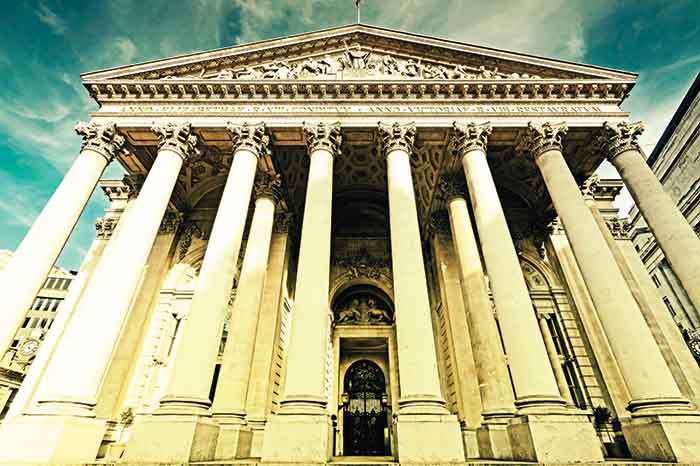Monday 15 June
– Chinese economic data
AJ Bell investment director Russ Mould said the latest numbers, which reflect industrial production, retail sales and investment in tangible assets, will give economists a steer on how well the Chinese economy is regaining momentum after coming out of lockdown.
In April Chinese retail sales plunged 7.5%, while investment in fixed assets was down 10.3%. But industrial production rose 3.9%.
All China’s purchasing managers’ indices, released earlier this month, were back above 50 in May which Mould said was “encouraging” after the 6.8% year-on-year drop in GDP in Q1.
– Empire State Manufacturing Survey from the Federal Reserve Bank of New York
Tuesday 16 June
– Ashtead Q4 earnings release
Ashtead’s share price has weathered the coronavirus sell-off surprisingly well, rebounding from at a three year low of £14.57 to its current £24.12 which is 23% higher than a year ago.
“This may look strange when the company rents out capital equipment and so is very dependent on the economic cycle and industries like construction and house building for its bread and butter,” said Mould.
“But Ashtead gets around 90% of its sales and profits from the USA, via its Sunbelt subsidiary, with the rest largely coming from the UK-based A-Plant business, and investors are clearly taking the view that the American economy is going to bounce back from the virus and the lockdown very quickly.”
Analysts are forecasting an underlying pre-tax profit of £1.05bn for the year, down modestly on last year’s £1.1bn, as well as sales growth of £5bn, up from £4.5bn.
However, for the new financial year, pre-tax profits are expected to shrink by a third to £707m thanks to the disruption caused by the coronavirus.
Mould notes Ashtead’s consecutive string of annual dividend hikes since 2005 is also in jeopardy, with analysts forecasting a final payment of 35.8p, down from 40p a year ago.
– Multi-utility supplier Telecom Plus publishes final results
– Monetary policy decision from the Bank of Japan
Headline interest rates are currently being held at –0.1%. The BoJ‘s Yield Curve Control model (YCC), which aims to push down short to medium-term yields for without bringing down long-dated bond yield, is being considered by other central banks amid the coronavirus crisis, including the Federal Reserve.
– US retail sales, industrial production and capacity utilisation rate data
– US National Association of Home Builders/Wells Fargo Housing Index
– German Zew Indicator of Economic Sentiment
Mould notes this “rebounded hugely” in May to 51, the highest reading in four years.
Wednesday 17 June
– Full year results from SSE, Kingfisher and De La Rue
– Online fashion retailer boohoo and infrastructure product manufacturer Hill and Smith release trading updates
– Logistics and warehousing group Wincanton reports preliminary Q4 figures
– UK inflation figures
“Economists and investors continue to wrestle with whether the Covid-19 outbreak leads to inflation (thanks to supply chain disruption, corporate failures that reduce output and the combination of massive fiscal and monetary stimulus), deflation (thanks to mass unemployment, a recession and excess global indebtedness) or stagflation,” said Mould.
“Gyrations in the oil price provide an additional layer of complexity in the short term but in April inflation was just 0.8% on the consumer price index and just 0.9% using the Bank of England’s preferred CPIH measure, which includes housing costs, well below the 2% target rate.”
Thursday 18 June
– Bank of England policy decision
The monetary policy committee has been on the same page on interest rates, voting unanimously to keep the BoE base rate at 0.1% last month. But Mould said there has been dissent on whether the central bank’s QE programme, which has increased by £200bn to £645bn, is sufficient to combat the effects of Covid.
In theory Mould thinks there is still scope for the bank to increase QE, with current bond purchases representing barely 30% of GDP.
But he said: “Sceptics will question whether using the same blunt instruments which have offered only lukewarm growth and little sustained success in meeting inflation targets while potentially stoking asset bubbles and therefore social inequality is a good idea, although the potential damage from the Covid-19 outbreak may render any such objections pretty moot.
“That said, central bankers did not have the opportunity to withdraw the stimulus applied in the wake of the Great Financial Crisis and gold bugs in particular will be of the view that they won’t be able or willing to sterilise QE or raise rates (for long) this time around either, as increased global indebtedness means the foundations of any recovery are brittle at best.”
– Full year results from National Grid
The Share Centre said all eyes will be on the dividend and any information regarding further payments. The electricity and gas supplier said earlier this year it had not seen any material impact from the virus crisis but would monitor the situation before deciding whether to cut the dividend.
“The defensive nature of the sector has come to the fore in the current crisis, with the shares down by around 10%,” the stockbroker said.
– Swiss National Bank interest rate decision
– Results from FTSE 250 company Safestore
Friday June 19
– Housebuilder Berkeley reports full-year results, while cruise ship company Carnival, which has seen 60% knocked off its share price since the coronavirus sell-off, is due to publish H1 earnings
– John Wood Q2 sales and revenues release







